Text
INNOVATIONS TRANSFORMING CANCER TREATMENT: A LOOK AT CUTTING-EDGE TECHNOLOGIES
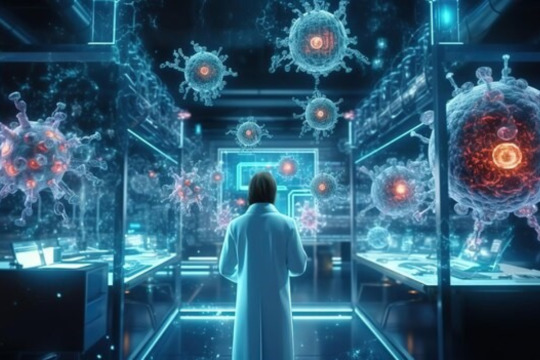
In the realm of cancer research, what once seemed like science fiction is now a tangible reality, all thanks to a myriad of technological advancements. These innovations are not just changing the way we perceive cancer treatment but are actively accelerating progress against this formidable disease. In this given blog Dr Ashish Gupta will help you understand some groundbreaking technologies that are reshaping the landscape of cancer care and ushering in a new era of hope and possibility.
Artificial Intelligence (AI)
Imagine having a digital twin- a virtual representation of yourself – crafted through sophisticated AI algorithms to help physicians tailor treatment plans with unparalleled precision. This futuristic concept is now within reach, thanks to the remarkable capabilities of artificial intelligence. By sifting through vast troves of data, AI can pinpoint patterns, aiding in cancer diagnosis, drug development, and personalized medicine. As per Dr Ashish Gupta, USA trained, American board-certified medical oncologist, Chief of Medical Oncology, Unique Hospital Cancer Centre, Dwarka India, whether it’s analyzing imaging data or predicting treatment outcomes, AI is poised to revolutionize every facet of cancer care, promising transformative advancements on the horizon.
Telehealth
In an age where connectivity reigns supreme, telehealth emerges as a beacon of hope, seamlessly bridging the gap between patients and cancer care providers. Especially crucial in the midst of a pandemic, telehealth has become instrumental in delivering cancer treatment and running clinical trials remotely. From remote health monitoring to video consultations, telehealth not only enhances accessibility but also ensures safety and convenience for patients and providers alike. However, the journey towards equitable telehealth access poses its own set of challenges, underscoring the ongoing need for research and innovation in this domain.
Cryo-Electron Microscopy (Cryo-EM)
Peer through the lens of cryo-electron microscopy, and you’ll behold a world of molecular intricacies previously unseen. With unprecedented resolution, Cryo-EM enables researchers to delve into the inner workings of molecules, unraveling the mysteries of cancer cell behavior and therapeutic interactions. Recent breakthroughs, such as visualizing drug interactions at the molecular level, exemplify the transformative potential of Cryo-EM in shaping future cancer treatments. As access to this cutting-edge technology expands, so too does our understanding of cancer biology, paving the way for targeted interventions and personalized therapies.
Infinium Assay
The secrets encoded within our genes, the Infinium Assay emerges as a powerful tool in deciphering the genetic underpinnings of cancer. By scrutinizing millions of genetic variations, this innovative assay sheds light on cancer risk, progression, and development. Initially met with skepticism, its journey from conception to widespread adoption showcases the tangible impact of taxpayer-funded innovation. From cancer research to population-wide genomic studies, the Infinium Assay holds immense promise in unraveling the genetic tapestry of cancer and beyond.
Robotic Surgery
Enter the realm of robotic surgery, where precision meets innovation to redefine the surgical landscape. With robotic arms wielding scalpel-like precision, complex cancer surgeries become minimally invasive affairs, offering patients faster recovery times and reduced postoperative discomfort. Beyond the allure of futuristic technology, robotic surgery epitomizes the marriage of precision and compassion, offering renewed hope to cancer patients worldwide.
Conclusion
As we stand at the precipice of a new era in cancer treatment, fueled by cutting-edge technologies, the future holds boundless promise and potential. From AI-driven personalized medicine to the precision of robotic surgery, each innovation represents a stepping stone towards a world where cancer is not just treatable but conquerable. By embracing and harnessing these transformative technologies, we embark on a journey towards a brighter, healthier tomorrow- one where cancer is no longer a formidable adversary but a conquerable challenge. If you are searching best cancer treatment, contact Dr Ashish Gupta, USA trained, American board-certified medical oncologist
#best oncologist in delhi ncr#best oncology doctor in delhi#cancer tratment in dwakra#unique cancer hospital#top oncologists in dwarka#cancer doctor in delhi#best doctor for breast cancer#USA Second Opinion
0 notes
Text
LATEST ADVANCEMENTS IN CANCER TREATMENT

Cancer, a formidable adversary claiming millions of lives annually, has long posed a significant challenge to medical science. However, amidst the grim statistics, recent breakthroughs are ushering in a new era of hope and progress in the battle against this relentless disease. Dr. Ashish Gupta, USA trained, American board-certified medical oncologist and Chief of Medical Oncology at Unique Hospital Cancer Centre, Dwarka India, stands at the forefront of these advancements
Cancer: A Complex Enemy
Cancer, characterized by the uncontrollable proliferation of cells within the body, remains enigmatic in its origins and elusive in its treatment. While no singular cause can be pinpointed, certain factors, such as smoking, radiation exposure, and genetic predisposition, heighten the risk of developing this formidable illness. Dr. Ashish Gupta emphasizes the importance of understanding these risk factors to navigate prevention strategies effectively.
Prevention: Navigating Risk Factors
In the quest for prevention, awareness and avoidance of these risk factors play a pivotal role. Empowering individuals with knowledge about lifestyle choices and environmental influences can mitigate the likelihood of cancer development. Dr. Ashish Gupta‘s expertise guides patients in making informed decisions to reduce their susceptibility to this disease.
Immunotherapy: Harnessing the Body’s Defenses
Immunotherapy emerges as a groundbreaking frontier in cancer treatment, leveraging the body’s own immune system to combat malignancies. This innovative approach, often integrated with conventional methods like surgery and chemotherapy, shows promise across diverse cancer types, including breast, lung, and melanoma. While hailed for its efficacy, immunotherapy may entail side effects such as fatigue and autoimmune reactions, underscoring the need for comprehensive patient care overseen by experts like Dr. Ashish Gupta.
Targeted Therapy: Precision in Action
Targeted therapy, another cutting-edge modality, zeroes in on specific genetic aberrations driving cancer growth. By thwarting molecular targets implicated in tumorigenesis, this tailored approach offers renewed hope for patients resistant to traditional treatments. With ongoing research yielding a myriad of targeted therapies, the horizon of cancer management expands exponentially under the guidance of specialists like Dr. Ashish Gupta.
Photodynamic Therapy (PDT): Illuminating New Paths
PDT illuminates the realm of cancer treatment with its light-activated approach to cell eradication. By sensitizing tumors to specialized light sources, this technique exerts precise cytotoxic effects, holding promise for various malignancies, from skin to pancreatic cancer. As an adjunct to conventional modalities, PDT enhances treatment efficacy while minimizing adverse effects, bolstering its appeal as a safe and efficacious option, endorsed by experts like Dr. Ashish Gupta.
Hyperthermia: Heating Up the Fight
Harnessing the power of heat, hyperthermia emerges as a formidable contender in the arsenal against cancer. Whether administered externally or internally, thermal energy targets and destroys cancerous cells, offering a non-invasive alternative across a spectrum of malignancies. As ongoing research refines techniques and expands applications, hyperthermia continues to carve its niche in the landscape of cancer care, guided by leaders in the field such as Dr. Ashish Gupta.
Embracing Hope: Charting a Brighter Future
As the dawn of a new era in cancer treatment unfolds, optimism pervades the medical community and instills hope in patients worldwide. With an array of innovative therapies at their disposal, clinicians stand poised to confront cancer with unprecedented precision and efficacy, led by pioneers like Dr. Ashish Gupta. With each advancement, the trajectory of this age-old battle veers closer towards triumph, illuminating a future where cancer’s grip is loosened, and lives are transformed.
Conclusion
In the relentless pursuit of a cure, the latest advancements in cancer treatment herald a paradigm shift in the fight against this formidable foe. From immunotherapy and targeted therapy to photodynamic therapy and hyperthermia, these cutting-edge modalities offer new avenues of hope and healing for patients and families affected by cancer. As research continues to push the boundaries of innovation, the promise of a brighter, cancer-free future grows ever nearer under the guidance of experts like Dr. Ashish Gupta.
#best oncologist in delhi ncr#best oncology doctor in delhi#cancer tratment in dwakra#unique cancer hospital#top oncologists in dwarka
0 notes
Text
5 LIFESTYLE HABITS THAT COULD BE PUTTING YOU AT RISK FOR CANCER

A well-balanced diet rich in nutrients is essential for maintaining a healthy body and reducing the risk of cancer. Here’s how different food groups contribute to cancer prevention, according to Dr. Ashish Gupta, a USA trained, American board-certified medical oncologist, and Chief of Medical Oncology at Unique Hospital Cancer Centre, Dwarka, India:
Fruits and Vegetables: Packed with vitamins, minerals, and antioxidants, fruits and vegetables play a crucial role in reducing the risk of various cancers, especially those affecting the digestive system. Incorporating a variety of colorful fruits and vegetables into your diet can provide protective benefits against cancer.
Whole Grains and Legumes: Opting for whole grains like brown rice, oats, and whole wheat, along with legumes such as lentils and beans, can help lower the risk of colorectal cancer. These fiber-rich foods aid in digestion and promote overall gut health.
Lean Proteins: Choose lean sources of protein such as fish, poultry, tofu, nuts, and seeds over processed meats like bacon and sausage. Processed meats have been linked to an increased risk of colorectal cancer, making it advisable to limit their consumption, especially in children.
Healthy Fats: Incorporating sources of healthy fats like olive oil, avocados, and nuts into your diet can help reduce the risk of certain cancers. Conversely, diets high in saturated and trans fats, often found in processed and fried foods, may increase cancer risk, particularly prostate cancer.
Dairy and Alternatives: Opt for reduced-fat dairy products and alternatives to maintain a healthy balance of calcium and protein in your diet. High intake of dairy fat has been associated with an elevated risk of prostate cancer, so moderation is key.
Lifestyle Factors and Cancer Risk
Dr Ashish Gupta said, in addition to diet, several lifestyle factors can influence the likelihood of developing cancer. Here are some important considerations:
Smoking: Tobacco use is the leading cause of lung cancer worldwide. Quitting smoking and avoiding second-hand smoke are crucial steps in reducing the risk of lung cancer and other smoking-related cancers.
Physical Activity: Regular exercise not only helps maintain a healthy weight but also reduces the risk of various cancers, including breast and colon cancer. Aim for at least 150 minutes of moderate-intensity exercise per week.
Alcohol Consumption: Limiting alcohol intake can significantly lower the risk of several cancers, such as those of the mouth, throat, esophagus, liver, and breast. It’s recommended to adhere to moderate drinking guidelines to minimize cancer risk.
Sun Protection: Protecting your skin from harmful UV rays by wearing sunscreen, protective clothing, and seeking shade can reduce the risk of skin cancer, including melanoma.
Specific Foods and Their Impact on Cancer Risk
Understanding how certain foods can affect the risk of specific types of cancer is crucial for making informed dietary choices. Here’s a closer look at some common cancers and dietary recommendations by Dr Ashish Gupta:
Lung Cancer: While fruits and vegetables offer some protection against lung cancer, the most effective prevention strategy remains avoiding tobacco smoke, including second-hand smoke.
Breast Cancer: Incorporating mono-unsaturated fats from sources like olive oil and increasing vegetable intake can help reduce the risk of breast cancer. Limiting alcohol consumption is also important for breast cancer prevention.
Prostate Cancer: Men can reduce their risk of prostate cancer by maintaining a healthy weight, consuming vegetables like tomatoes rich in lycopene, and avoiding a high-fat diet predominantly from animal sources.
Bowel Cancer: A diet high in fiber from vegetables and grains, along with limited consumption of red and processed meats, can help lower the risk of bowel cancer. Additionally, maintaining an active lifestyle is beneficial.
Conclusion
In conclusion, adopting a healthy diet and lifestyle can significantly reduce the risk of developing cancer. As per Dr Ashish Gupta, incorporating nutrient-rich foods, engaging in regular physical activity, and avoiding harmful habits like smoking and excessive alcohol consumption, you can take proactive step
#best oncologist in delhi ncr#best oncology doctor in delhi#cancer tratment in dwakra#unique cancer hospital#top oncologists in dwarka#cancer doctor in delhi#best doctor for breast cancer#breast cancer treatment in delhi#lung cancer specialists#lung cancer treatment in delhi
0 notes
Text
10 WARNING SIGNS OF SKIN CANCER YOU SHOULD NEVER IGNORE
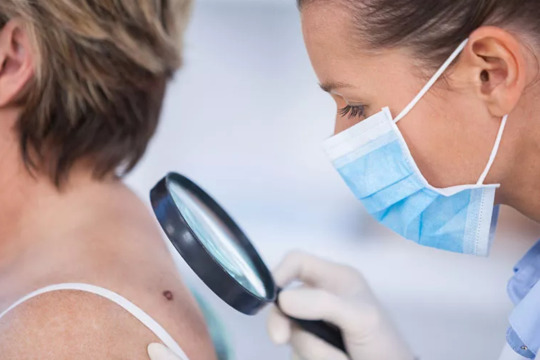
Early detection is crucial in the fight against cancer. Alongside regular screenings and check-ups, paying attention to changes in your body can aid in catching cancer at its earliest stages. Recognizing warning signs and symptoms can prompt timely medical intervention, potentially improving treatment outcomes. Here are 10 symptoms that may indicate the presence of cancer and warrant a consultation with your healthcare provider, as emphasized by Dr. Ashish Gupta, USA trained, American board-certified medical oncologist, Chief of Medical Oncology at Unique Hospital Cancer Centre in Dwarka, India
Abnormal Periods or Pelvic Pain: While irregular periods and occasional pelvic discomfort are common, persistent changes in your menstrual cycle or chronic pelvic pain could signal underlying gynecological cancers such as cervical, uterine, or ovarian cancer.
Changes in Bathroom Habits: Significant alterations in bowel or bladder habits, including persistent constipation or diarrhea, blood in stool or urine, and increased frequency of urination, may indicate colorectal, prostate, or bladder cancer.
Bloating: Chronic bloating lasting more than two weeks can be a red flag for ovarian cancer and various gastrointestinal malignancies. Monitoring and reporting persistent bloating to your doctor is crucial for timely evaluation.
Breast Changes: New breast lumps, skin dimpling, nipple changes, or unusual discharge should be promptly evaluated, as they may signify breast cancer. It’s important to note that breast cancer can affect men as well.
Chronic Coughing: A persistent cough, especially if dry, lasting more than two weeks could be a warning sign of lung cancer. Early detection through medical assessment is essential for timely intervention.
Chronic Headache: Headaches persisting for more than two weeks and unresponsive to typical treatments may be associated with brain tumors. Seeking medical attention for prolonged headaches is paramount for accurate diagnosis and management.
Difficulty Swallowing: Persistent difficulty in swallowing, sensation of food sticking in the throat, or throat pain lasting more than two weeks may indicate throat, lung, or stomach cancer and warrants medical evaluation.
Excessive Bruising: Sudden onset of unexplained bruises in unusual locations, not attributable to injury, may indicate underlying blood cancers. Prompt medical assessment is necessary for proper diagnosis and management.
Frequent Fevers or Infections: Recurrent fevers or frequent infections may suggest compromised immunity, possibly due to conditions such as lymphoma or leukemia. Timely medical evaluation is essential for appropriate management.
Oral Changes: Persistent oral sores, lesions, or painful areas, particularly in individuals with a history of smoking or heavy alcohol consumption, should be evaluated for potential oral cancers.
Skin Changes: Changes in the appearance of moles or birthmarks should be monitored closely. Utilizing the ABCDE mnemonic-Asymmetry, Border irregularity, Color variation, Diameter increase, and Evolution-can aid in identifying concerning skin changes that warrant medical attention.
Persistent Pain: Unexplained and persistent pain lasting beyond standard treatment duration requires medical assessment to rule out underlying malignancies.
Persistent Fatigue: Sudden and persistent fatigue unrelated to changes in activity level or sleep patterns may indicate underlying hematological cancers such as leukemia or lymphoma and necessitates medical evaluation.
Postmenopausal Bleeding: While postmenopausal bleeding may have various causes, persistent occurrences should prompt evaluation for cervical or uterine cancer.
Stomach Pain or Nausea: Unexplained stomach discomfort or persistent nausea lasting more than two weeks should be investigated, as they may indicate gastrointestinal or abdominal cancers.
Unexplained Weight Loss: Significant unintentional weight loss or loss of appetite without apparent cause could be indicative of various cancers, particularly those that have metastasized.
Unusual Lumps: Any new or persistent lumps or masses should be evaluated by a healthcare professional to rule out potential malignancies, especially if accompanied by other concerning symptoms.
Conclusion
Recognizing early warning signs of cancer and promptly consulting a healthcare provider for evaluation is crucial for timely diagnosis and treatment. By being vigilant and proactive about changes in your body, you can play an active role in safeguarding your health and well-being. If you are searching for the best dr in dwarka contact Dr. Ashish Gupta
#Skin Cancer in Delhi#Skin Cancer Doctor in Dwarka#best Skin Cancer Speaclist#top oncologists in dwarka#best oncologist in delhi ncr#best oncology doctor in delhi#cancer tratment in dwakra#unique cancer hospital#best doctor for breast cancer#cancer doctor in delhi#breast cancer treatment in delhi#lung cancer specialists#lung cancer treatment in delhi
0 notes
Text
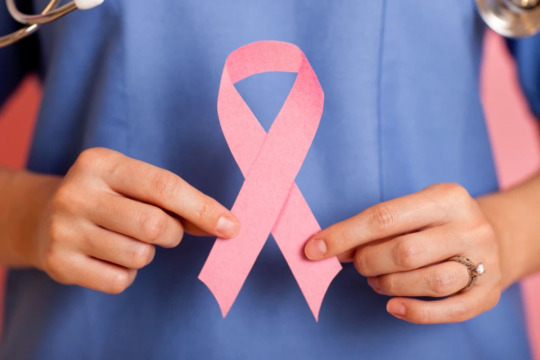
HOW HORMONE THERAPY COULD CHANGE THE LIVES OF BREAST CANCER PATIENTS IN INDIA?
Breast cancer is a significant health concern worldwide, affecting millions of women each year. In India, the prevalence of breast cancer is on the rise, with many patients seeking effective treatment options to combat this disease. One promising avenue of treatment that has gained attention in recent years is hormone therapy. Led by experts like Dr. Ashish Gupta USA trained, American board-certified medical oncologist, Chief of Medical Oncology, Unique Hospital Cancer Centre, Dwarka, India, hormone therapy is changing the landscape of breast cancer treatment in India.
#best oncologist in delhi ncr#best oncology doctor in delhi#unique cancer hospital#top oncologists in dwarka#Best Doctor For Breast Cancer#Breast Cancer Treatment In Delhi
0 notes
Text
HOW HORMONE THERAPY COULD CHANGE THE LIVES OF BREAST CANCER PATIENTS IN INDIA?
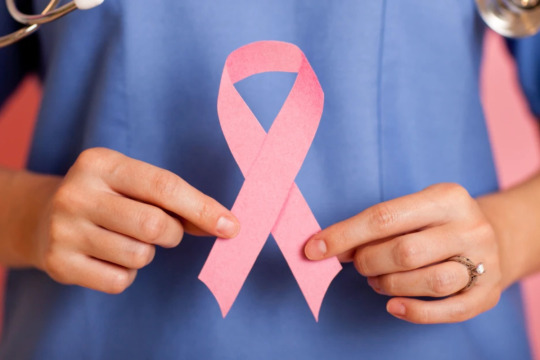
Breast cancer is a significant health concern worldwide, affecting millions of women each year. In India, the prevalence of breast cancer is on the rise, with many patients seeking effective treatment options to combat this disease. One promising avenue of treatment that has gained attention in recent years is hormone therapy. Led by experts like Dr. Ashish Gupta USA trained, American board-certified medical oncologist, Chief of Medical Oncology, Unique Hospital Cancer Centre, Dwarka, India, hormone therapy is changing the landscape of breast cancer treatment in India.
Understanding Breast Cancer and Treatment Options
Breast cancer occurs when abnormal cells in the breast grow uncontrollably, forming a tumour that can spread to other parts of the body if left untreated. Fortunately, advancements in medical science have led to various treatment options for breast cancer, including surgery, chemotherapy, radiation therapy, and hormone therapy.
What is Hormone Therapy?
Hormone therapy, also known as endocrine therapy, works by blocking the production or action of hormones that fuel the growth of certain types of breast cancer. This treatment is particularly effective for hormone receptor-positive breast cancers, where the cancer cells rely on oestrogen or progesterone to grow.
How Hormone Therapy Works
Hormone therapy can be administered in several ways, including medications that block hormone receptors or reduce hormone levels in the body. By disrupting the hormonal environment that fuels cancer growth, hormone therapy helps slow down or even stop the progression of breast cancer.
Benefits of Hormone Therapy
Here are some benefits of hormone therapy:
Non-Invasive Treatment Option: Unlike traditional chemotherapy, hormone therapy typically involves taking medication orally, making it a less invasive treatment option.
Targeted Approach: By specifically targeting hormone receptors on cancer cells, hormone therapy can effectively slow down or stop the growth of cancer.
Reduced Side Effects: Compared to chemotherapy, hormone therapy often causes fewer side effects, allowing patients to maintain a better quality of life during treatment.
Changing Lives Through Hormone Therapy
Hormone therapy has the potential to change the lives of breast cancer patients in India by offering a targeted and effective treatment option with fewer side effects. For many patients, hormone therapy provides hope for a brighter future, allowing them to continue living their lives while undergoing treatment.
The Importance of Early Detection and Treatment
Early detection plays a crucial role in improving outcomes for breast cancer patients. Regular breast self-exams, mammograms, and clinical breast exams can help detect cancer at an early stage when it is most treatable. By seeking prompt medical attention and following recommended screening guidelines, individuals can increase their chances of successful treatment and recovery.
Hormone therapy represents a significant advancement in the treatment of breast cancer, offering patients in India a promising option for combating this disease. Led by dedicated professionals like Dr. Ashish Gupta, oncologist at Unique Hospital Cancer Centre Hospital in Dwarka, Delhi, hormone therapy is changing lives and providing hope for a brighter future for breast cancer patients across the country. With continued research and innovation, the landscape of breast cancer treatment will continue to evolve, offering new hope and possibilities for patients and their families.
#best oncologist in delhi ncr#best oncology doctor in delhi#cancer tratment in dwakra#unique cancer hospital#Best Doctor For Breast Cancer#Best Oncologist In Delhi Ncr#Breast Cancer Treatment In Delhi#Cancer Doctor In Delhi
0 notes
Text
PERSONALIZED CANCER PREVENTION: LEVERAGING AI AND GENETIC TESTING

In the fight against cancer, every step towards prevention is a stride in the right direction. With advancements in technology and medical science, personalised cancer prevention has emerged as a promising approach. One of the key components driving this innovation is the integration of artificial intelligence (AI) and genetic testing. Let’s delve into how these tools, alongside the expertise of professionals like Dr Ashish Gupta USA trained, American board-certified medical oncologist, Chief of Medical Oncology, Unique Hospital Cancer Centre, Dwarka India, is revolutionising cancer prevention strategies.
Understanding Personalized Cancer Prevention
Personalised cancer prevention involves analysing an individual’s genetic information to identify their risk factors for developing cancer. By understanding a person’s genetic predispositions, doctors can develop targeted prevention strategies to reduce their risk of developing cancer. This approach is a game-changer because it moves away from the traditional one-size-fits-all approach to cancer prevention and treatment.
The Role of AI in Personalized Cancer Prevention
Artificial intelligence plays a crucial role in personalised cancer prevention by analysing vast amounts of genetic data to identify patterns and correlations associated with cancer risk. AI algorithms can sift through this data much faster and more accurately than humans, enabling doctors to make more informed decisions about cancer prevention strategies.
Dr. Ashish Gupta, an oncologist at Unique Hospital Cancer Centre in Dwarka, Delhi, emphasises the importance of AI in personalised cancer prevention. “AI allows us to uncover hidden insights within genetic data that can significantly impact cancer prevention and treatment,” says Dr. Ashish Gupta. “By leveraging AI, we can develop personalised prevention plans that are tailored to each individual’s unique genetic profile.”
Genetic Testing
Genetic testing is a critical component of personalised cancer prevention. It involves analysing a person’s DNA to identify specific genetic mutations or variations that may increase their risk of developing cancer. Armed with this information, doctors can recommend targeted screening tests, lifestyle modifications, and preventive measures to mitigate the risk of cancer.
Cancer Treatment Options
In addition to prevention, personalised cancer care extends to treatment options. By analysing a patient’s genetic profile, doctors can identify treatments that are most likely to be effective and minimise the risk of adverse reactions. This approach, known as precision medicine, is revolutionising cancer treatment by offering more tailored and effective therapies.
Benefits of Personalized Cancer Prevention
Tailored Prevention Strategies: Personalised cancer prevention allows doctors to develop customised prevention plans based on an individual’s unique genetic makeup.
Early Detection: Genetic testing can identify individuals at high risk of developing cancer, enabling early intervention and improved outcomes.
Precision Treatment: Personalised cancer care ensures that patients receive treatments that are specifically targeted to their genetic profile, increasing effectiveness and reducing side effects.
Empowerment Through Knowledge: By understanding their genetic risk factors, individuals can take proactive steps to reduce their risk of developing cancer, such as adopting healthier lifestyles and undergoing regular screening tests.
Personalised cancer prevention, fueled by AI and genetic testing, holds immense promise in the fight against cancer. With professionals like Dr. Ashish Gupta leading the charge, individuals can now take proactive steps to reduce their cancer risk and lead healthier lives. As technology continues to advance, personalised cancer prevention will undoubtedly play an increasingly vital role in healthcare, offering hope to millions worldwide.
In the journey towards a cancer-free future, personalised prevention is a beacon of hope, guiding us towards healthier tomorrows.
#best oncologist in delhi ncr#best oncology doctor in delhi#cancer tratment in dwakra#cancer surgeon in delhi#Unique Cancer Hospital
0 notes
Text

In the fight against cancer, every step towards prevention is a stride in the right direction. With advancements in technology and medical science, personalised cancer prevention has emerged as a promising approach. One of the key components driving this innovation is the integration of artificial intelligence (AI) and genetic testing. Let’s delve into how these tools, alongside the expertise of professionals like Dr Ashish Gupta USA trained, American board-certified medical oncologist, Chief of Medical Oncology, Unique Hospital Cancer Centre, Dwarka India, is revolutionising cancer prevention strategies.
Understanding Personalized Cancer Prevention
Personalised cancer prevention involves analysing an individual’s genetic information to identify their risk factors for developing cancer. By understanding a person’s genetic predispositions, doctors can develop targeted prevention strategies to reduce their risk of developing cancer. This approach is a game-changer because it moves away from the traditional one-size-fits-all approach to cancer prevention and treatment.
The Role of AI in Personalized Cancer Prevention
Artificial intelligence plays a crucial role in personalised cancer prevention by analysing vast amounts of genetic data to identify patterns and correlations associated with cancer risk. AI algorithms can sift through this data much faster and more accurately than humans, enabling doctors to make more informed decisions about cancer prevention strategies.
Dr. Ashish Gupta, an oncologist at Unique Hospital Cancer Centre in Dwarka, Delhi, emphasises the importance of AI in personalised cancer prevention. “AI allows us to uncover hidden insights within genetic data that can significantly impact cancer prevention and treatment,” says Dr. Ashish Gupta. “By leveraging AI, we can develop personalised prevention plans that are tailored to each individual’s unique genetic profile.”
Genetic Testing
Genetic testing is a critical component of personalised cancer prevention. It involves analysing a person’s DNA to identify specific genetic mutations or variations that may increase their risk of developing cancer. Armed with this information, doctors can recommend targeted screening tests, lifestyle modifications, and preventive measures to mitigate the risk of cancer.
Cancer Treatment Options
In addition to prevention, personalised cancer care extends to treatment options. By analysing a patient’s genetic profile, doctors can identify treatments that are most likely to be effective and minimise the risk of adverse reactions. This approach, known as precision medicine, is revolutionising cancer treatment by offering more tailored and effective therapies.
Benefits of Personalized Cancer Prevention
Tailored Prevention Strategies: Personalised cancer prevention allows doctors to develop customised prevention plans based on an individual’s unique genetic makeup.
Early Detection: Genetic testing can identify individuals at high risk of developing cancer, enabling early intervention and improved outcomes.
Precision Treatment: Personalised cancer care ensures that patients receive treatments that are specifically targeted to their genetic profile, increasing effectiveness and reducing side effects.
Empowerment Through Knowledge: By understanding their genetic risk factors, individuals can take proactive steps to reduce their risk of developing cancer, such as adopting healthier lifestyles and undergoing regular screening tests.
Personalised cancer prevention, fueled by AI and genetic testing, holds immense promise in the fight against cancer. With professionals like Dr. Ashish Gupta leading the charge, individuals can now take proactive steps to reduce their cancer risk and lead healthier lives. As technology continues to advance, personalised cancer prevention will undoubtedly play an increasingly vital role in healthcare, offering hope to millions worldwide.
In the journey towards a cancer-free future, personalised prevention is a beacon of hope, guiding us towards healthier tomorrows.
#best oncologist in delhi ncr#best oncology doctor in delhi#cancer tratment in dwakra#Cancer Speaclist in Delhi#Cancer Hospital in Delhi
0 notes
Text

THE MOST COMMON CANCERS IN MEN: HOW TO REDUCE RISK
Cancer is a serious health concern affecting millions of people worldwide, including men. Understanding the most prevalent types of cancer in men and learning how to reduce the risk can significantly improve overall health and well-being. Dr. Ashish Gupta, an oncologist at the Unique Hospital Cancer Centre in Dwarka, Delhi, emphasizes the importance of awareness and prevention strategies to combat these diseases effectively.
Prostate Cancer:
Prostate cancer is one of the most common cancers among men. It begins in the prostate gland, which is part of the male reproductive system. Age, family history, and ethnicity are all considered risk factors. Dr. Ashish Gupta recommends regular screenings, staying at a healthy weight, and eating a well-balanced diet rich in fruits, vegetables, and whole grains.
#best oncologist in delhi ncr#best oncology doctor in delhi#cancer tratment in dwakra#Skin Cancer Doctor in Delhi#Skin Cancer treatment
0 notes
Text
THE MOST COMMON CANCERS IN MEN: HOW TO REDUCE RISK

Cancer is a serious health concern affecting millions of people worldwide, including men. Understanding the most prevalent types of cancer in men and learning how to reduce the risk can significantly improve overall health and well-being. Dr. Ashish Gupta, an oncologist at the Unique Hospital Cancer Centre in Dwarka, Delhi, emphasizes the importance of awareness and prevention strategies to combat these diseases effectively.
Prostate Cancer:
Prostate cancer is one of the most common cancers among men. It begins in the prostate gland, which is part of the male reproductive system. Age, family history, and ethnicity are all considered risk factors. Dr. Ashish Gupta recommends regular screenings, staying at a healthy weight, and eating a well-balanced diet rich in fruits, vegetables, and whole grains.
Lung Cancer:
Smoking is the leading cause of lung cancer in men. Quitting smoking and avoiding exposure to secondhand smoke and harmful chemicals can significantly lower the risk of developing lung cancer. Additionally, maintaining good lung health through regular exercise and avoiding environmental pollutants is crucial.
Colorectal Cancer:
Colorectal cancer affects the colon or rectum and usually develops from precancerous polyps. Age, family history, diet high in red meat and processed foods, obesity, and lack of physical activity are risk factors. Dr. Ashish Gupta advises regular screenings, maintaining a healthy weight, exercising regularly, and consuming a diet rich in fiber, fruits, and vegetables to reduce the risk.
Skin Cancer:
Skin cancer, including melanoma, is highly preventable by following sun safety precautions. This includes using sunscreen with a high SPF, seeking shade during peak sun hours, and wearing protective clothing like hats and sunglasses. Regular skin checks for unusual moles or changes in existing moles are also advised.
Testicular Cancer:
Testicular cancer typically affects younger men and is one of the most treatable cancers if detected early. Risk factors include undescended testicles, family history, and certain medical conditions. Dr. Ashish Gupta advises performing regular self-exams and seeking medical attention if you notice any changes in the size or texture of your testicles.
Bladder Cancer:
Bladder cancer is more common in older men and those with a history of smoking or exposure to certain chemicals. Symptoms include blood in urine, frequent urination, and pain during urination. To reduce your risk, Dr. Ashish Gupta recommends quitting smoking, staying hydrated, and avoiding exposure to harmful chemicals.
Tips to Reduce Cancer Risk:
Maintain a healthy weight by exercising regularly and eating a balanced diet.
Quit smoking and avoid secondhand smoke.
Limit your alcohol consumption.
Wearing sunscreen and protective clothing can help you avoid harmful UV rays.
Eat plenty of fruits, vegetables, whole grains, and lean proteins.
Schedule regular screenings and check-ups as directed by your healthcare provider.
Be aware of your family history and share any concerns with your doctor.
Stay active and engage in regular physical activity to keep your overall health.
Being aware of the most common cancers in men and taking proactive steps to reduce the risk is crucial for maintaining overall health and well-being. Dr Ashish Gupta USA trained, American board-certified medical oncologist, Chief of Medical Oncology, Unique Hospital Cancer Centre, Dwarka India, underscores the significance of regular screenings, healthy lifestyle choices, and early detection in combating cancer. By adopting these preventive measures and staying informed, men can empower themselves to lead healthier lives and reduce their risk of cancer.
#best oncologist in delhi ncr#best oncology doctor in delhi#cancer tratment in dwakra#Unique Cancer Hospital#Cancer Doctor in Delhi
0 notes
Text
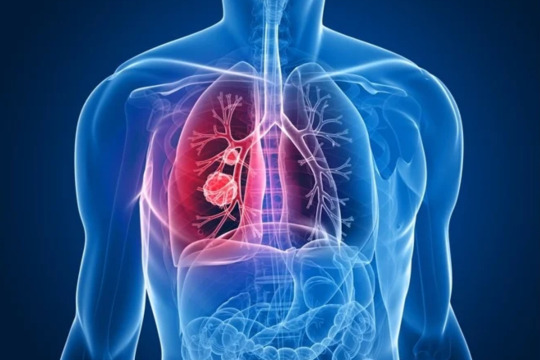
DOES FAMILY HISTORY HEIGHTEN LUNG CANCER RISK?
Lung cancer is a serious health concern affecting millions of people worldwide. It’s crucial to understand the various factors that can contribute to its development, and one such factor often discussed is family history. But does having a family history of lung cancer really heighten your risk? Let’s delve into this topic with the help of Dr Ashish Gupta USA trained, American board-certified medical oncologist, Chief of Medical Oncology, Unique Hospital Cancer Centre, Dwarka India and explore some key points about lung cancer risk factors and treatment options.
#Lung Cancer Treatment In Delhi#Lung Cancer Specialists#Cancer Doctor in Delhi#best oncologist in delhi ncr#best oncology doctor in delhi#cancer tratment in dwakra
0 notes
Text
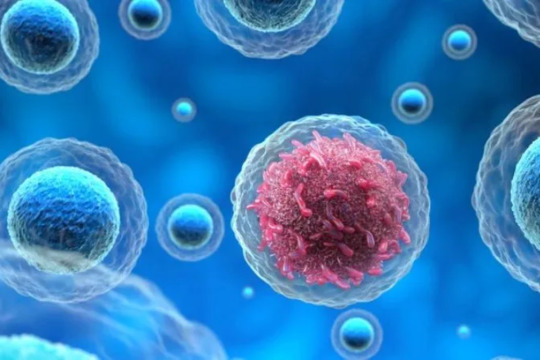
STRATEGIES TO REDUCE INDIA’S CANCER BURDEN: INSIGHTS FROM DR. ASHISH GUPTA
Why are cancer cases on rise in India?
According to the Indian Council of Medical Research-National Cancer Registry Programme, the number of cancer cases in the country is projected to go up from 14.6 lakh in 2022 to 15.7 lakh in 2025. There are multiple factors responsible for this.
1) Lifestyle
Did you know that in India, a significant portion of cancer cases stem from preventable causes? According to the sources, smoking and chewing tobacco alone contributes to 40% of cancer diagnoses, followed by infections at 20%, and poor diet combined with lack of physical activity at 10%. However, additional considerations are involved.
#best oncologist in delhi ncr#best oncology doctor in delhi#cancer tratment in dwakra#Cancer Doctor in Delhi.
0 notes
Text
DOES FAMILY HISTORY HEIGHTEN LUNG CANCER RISK?

Lung cancer is a serious health concern affecting millions of people worldwide. It’s crucial to understand the various factors that can contribute to its development, and one such factor often discussed is family history. But does having a family history of lung cancer really heighten your risk? Let’s delve into this topic with the help of Dr Ashish Gupta USA trained, American board-certified medical oncologist, Chief of Medical Oncology, Unique Hospital Cancer Centre, Dwarka India and explore some key points about lung cancer risk factors and treatment options.
Understanding Lung Cancer Risk Factors
Before we dive into the role of family history, it’s important to grasp the basic risk factors associated with lung cancer. Smoking remains the leading cause of lung cancer, responsible for the majority of cases. However, non-smokers can also develop lung cancer due to other factors such as exposure to secondhand smoke, environmental pollutants, and genetic predispositions.
The Role of Family History
Family history plays a significant role in determining an individual’s risk of developing certain types of cancer, including lung cancer. If you have a close relative such as a parent or sibling who has been diagnosed with lung cancer, your risk may be slightly elevated compared to those without a family history. However, it’s essential to note that having a family history doesn’t guarantee that you’ll develop lung cancer. Many other factors come into play, including lifestyle choices and environmental exposures.
Key Points to Remember
Family History: Having a family member with lung cancer may increase your risk, but it’s not a guarantee that you’ll develop the disease.
Risk Factors: Smoking remains the primary risk factor for lung cancer, but non-smokers can also be affected by other factors such as genetics and environmental exposures.
Early Detection: Regular screenings and prompt medical attention are crucial for early detection and effective treatment of lung cancer.
Treatment Options: Unique Hospital Cancer Centre provides comprehensive cancer care services, including advanced treatment options tailored to each patient’s needs.
Key Points to Consider:
Multidisciplinary Approach: A multidisciplinary team of experts, including oncologists, surgeons, radiation oncologists, and supportive care providers, collaborate to develop personalised treatment plans for each patient.
Precision Medicine: Targeted therapy and immunotherapy are revolutionising the treatment of lung cancer by targeting specific genetic mutations and boosting the body’s immune response against cancer cells.
Clinical Trials: Participating in clinical trials can provide access to cutting-edge treatments and contribute to advancements in cancer care.
Supportive Care: Managing side effects and maintaining quality of life are integral parts of cancer treatment. Unique Hospital Cancer Centre in Dwarka, Delhi offers comprehensive supportive care services, including pain management, nutritional support, and counselling.
Conclusion
While family history can influence your risk of developing lung cancer, it’s just one piece of the puzzle. By understanding the various risk factors, adopting a healthy lifestyle, and seeking timely medical care, you can take proactive steps to protect your lung health. Remember, knowledge is power when it comes to preventing and managing lung cancer.
If you have concerns about your lung cancer risk or are seeking treatment options, don’t hesitate to consult with a healthcare professional like Dr. Ashish Gupta at Unique Hospital Cancer Centre, Dwarka, India. Your health and well-being are paramount, and early intervention can make all the difference in your journey towards recovery.
#best oncologist in delhi ncr#best oncology doctor in delhi#cancer tratment in dwakra#Lung Cancer Treatment In Delhi#Lung Cancer Specialists#Best Lung Cancer Treatment In Dwakra#Lung Oncologist Speaclist In Delhi#Lung Cancer Treatment
0 notes
Text
STRATEGIES TO REDUCE INDIA’S CANCER BURDEN: INSIGHTS FROM DR. ASHISH GUPTA

Why are cancer cases on rise in India?
According to the Indian Council of Medical Research-National Cancer Registry Programme, the number of cancer cases in the country is projected to go up from 14.6 lakh in 2022 to 15.7 lakh in 2025. There are multiple factors responsible for this.
1) Lifestyle
Did you know that in India, a significant portion of cancer cases stem from preventable causes? According to the sources, smoking and chewing tobacco alone contributes to 40% of cancer diagnoses, followed by infections at 20%, and poor diet combined with lack of physical activity at 10%. However, additional considerations are involved.
Obesity is a big one. Being overweight significantly increases the risk of developing cancer. Then there’s sun exposure. Spending too much time under the sun or in tanning beds exposes you to harmful UV radiation, raising your chances of getting skin cancer.
Stress, too, plays a role. Experts warn that it can fuel the growth and spread of certain cancer forms. And it doesn’t stop there. Poor diet choices, bad oral hygiene, and exposure to harmful substances in our work and environment like pollution also contribute to the rising cancer rates.
According to Dr Ashish Gupta USA trained, American board-certified medical oncologist, Chief of Medical Oncology, Unique Hospital Cancer Centre, Dwarka India, The most common cancers in India are: breast cancer, oral cancer, cervical cancer, lung cancer and colorectal cancer. There are regional differences in cancer e.g. gallbladder cancer is much more common in Delhi/North India, Stomach Cancer is highest in South India, Oral Cancers are highest in MP, Gallbladder cancers are highest in UP/Delhi/West Bengal so called Gangetic plain. Much of this variation has to do with exposures to tobacco, alcohol, betel nut chewing, and other environmental exposures.
2) Detection of cancer- With the growth of healthcare facilities, hospitals, diagnostic centers more and more cases of cancer even from the villages are being detected that were previously not found, this is also contributing to increased rates of cancer in India.
3) Increased age of the population – We know that cancer risks increase as the population ages. This is also responsible for increased number of cancer cases How can India reduce its cancer burden?
Mutiple strategies can be undertaken:
Awareness campaigns at the community level in community centers, in schools, in colleges regarding cancer symptoms, risk factors and methods of early detection in the local language.
Conducting screening camps at the rural level with the help of the community health workers for cervical, oral and breast cancer.
Mobile vans- e.g. mammography vans to promote screening of breast cancer
Healthcare Facilities- development of new facilities at every level that can provide these services
Workforce- addressing the shortage of skilled professionals in oncology and other medical staff, investing in training programs and skill development
Research- supporting research initiatives to understand risk factors, patterns and compliance
Public-Private Partnerships
Telemedicine- expanding telemedicine to facilitate remote consultations in rural areas
Education- It plays a key role, with a focus on teaching prevention strategies to students and healthcare professionals alike
Cancer Prevention Nationwide Programs Simple lifestyle adjustments, such as maintaining a healthy weight, regular exercise, and avoiding tobacco and excessive alcohol, can significantly reduce the risk of certain cancers. Protecting oneself from sun exposure, sexually transmitted infections, and undergoing regular screening tests further enhances prevention efforts. By taking these strategies, individuals can take proactive steps towards a healthier future.
Understanding the Need for Second Opinions in Cancer Treatment Seeking a second opinion in cancer treatment can significantly improve outcomes and boost confidence in treatment decisions. It ensures patients have the right diagnosis, explores alternative treatment options, and confirms the suitability of their treatment plan. I believe every cancer patient should get a second opinion because in cancer the sequence of treatment is important.
Benefits of Second Opinion
Getting a second opinion for your cancer treatment decisions is crucial. Once you begin the treatment and after three or six months, there isn’t much chance of returning. Since cancer treatment is developing at a quick pace, getting a second opinion can be beneficial. New medicines are available almost every week now whereas it used to be months or years before. Another reason why you should think about getting a second opinion is simply because there are numerous clinical trials available in India and other countries that could be helpful to patients.
What is the new approach to cancer treatment?
The new approach to cancer treatment is using modern medicines from the first day to improve the cure of cancer. The new approach is that just like every patient is unique, every cancer is unique and we use personalized medicine to tackle cancer. The most recent developments including immunotherapy, targeted therapy, targeted forms of chemotherapy available as injections and/or even some tablets have greatly increased the cure rates. New medicines are available almost every week now whereas it used to be months or years before. Other techniques including CAR-T therapy, robotic surgery and targeted radiation have also improved outcomes.
These cutting-edge therapies are crucial in ensuring the comprehensive treatment and recovery of patients with different forms of cancer.
What is the role of AI in cancer treatment?
Artificial intelligence (AI) plays a crucial role in various aspects of cancer treatment. Firstly, it aids in early cancer detection by analyzing medical images and other data, potentially spotting diseases like pancreatic cancer several years before conventional diagnosis methods. Additionally, AI streamlines treatment planning by swiftly segmenting tumors and organs, significantly reducing the time radiation oncologists need for this task.
Furthermore, AI contributes to drug discovery efforts, making the process more efficient. It also assists in predicting treatment responses and outcomes, as well as advancing personalized medicine. By analyzing complex medical data, AI algorithms such as neural networks and deep learning can provide accurate assessments of clinical conditions, aiding in diagnosis, recurrence, and survival predictions for cancer patients.
#best oncologist in delhi ncr#best oncology doctor in delhi#cancer tratment in dwakra#best cancer doctor#unique Cancer hospital
0 notes
Text

ORAL CANCER: SIX THINGS EVERYBODY SHOULD KNOW
Oral cancer is a pressing concern that demands attention from individuals of all walks of life. Despite its severity, there’s a lack of awareness surrounding this condition. Dr. Ashish Gupta, only American board-certified medical oncologist in India, holds a pivotal role as the Chief of Medical Oncology at Unique Hospital Cancer Centre, Dwarka, India. With his expertise, let’s delve into six crucial aspects of oral cancer that everyone should be acquainted with.
#best oncologist in delhi ncr#best oncology doctor in delhi#cancer tratment in dwakra#Mouth Cancer Treatment#Oral Cancer Treatment
0 notes
Text
ORAL CANCER: SIX THINGS EVERYBODY SHOULD KNOW

Oral cancer is a pressing concern that demands attention from individuals of all walks of life. Despite its severity, there's a lack of awareness surrounding this condition. Dr. Ashish Gupta, only American board-certified medical oncologist in India, holds a pivotal role as the Chief of Medical Oncology at Unique Hospital Cancer Centre, Dwarka, India. With his expertise, let's delve into six crucial aspects of oral cancer that everyone should be acquainted with.
Risk Affects Everyone:
Oral cancer doesn't discriminate. While smoking and getting older increase the risk, it can affect anyone, regardless of age or lifestyle. Whether you're young and don't smoke or older and used to smoke, it's crucial to be mindful of your oral health.
Catch It Early
You've probably heard the saying "prevention is better than cure," and it's especially true for oral cancer. It is important to find oral cancer early because it improves the chances of successful treatment. Regular dental check-ups can help spot any suspicious signs early on.
Know the Risks:
Smoking and drinking alcohol are big risk factors for oral cancer, but even moderate use can be harmful. Dr. Gupta points out that making healthier choices can help lower your risk, no matter your age or past habits.
HPV's Role:
Human papillomavirus (HPV) is now known to play a role in oral cancer. Practising safe sex and getting vaccinated against HPV, especially if you're in a high-risk group, can help protect you from this virus and lower your risk of developing oral cancer.
Sun Protection Matters:
Sun exposure isn't just a concern for skin cancer. Prolonged exposure to the sun can also increase your risk of lip cancer. Protecting your lips with lip balms that have SPF and wearing wide-brimmed hats when you're out in the sun can help shield you from harmful UV rays.
Treatment Options:
There are various treatment options available, including surgery, radiation therapy, and special medications. The key is to seek help as soon as possible and take good care of your overall health during treatment.
Oral cancer is a serious threat that requires everyone's attention. By understanding the risks, knowing the importance of early detection, and taking preventive measures like getting vaccinated and protecting yourself from the sun, we can work towards reducing the impact of oral cancer. Remember, your oral health matters, so take steps to protect it today.
#best oncologist in delhi ncr#best oncology doctor in delhi#cancer tratment in dwakra#oral cancer treatment#Mouth cancer treatment
0 notes
Text

HOW TO SPOT EARLY SYMPTOMS OF COLON CANCER
Colorectal cancer encompasses both colon cancer and rectal cancer, two closely related conditions occurring in the lower digestive tract. Due to their proximity and shared characteristics, they are often discussed together. The colon serves as a reservoir for waste and plays a crucial role in absorbing water and nutrients from food, while the rectum functions to expel waste from the body. Dr. Ashish Gupta USA trained, American board-certified medical oncologist, Chief of Medical Oncology, Unique Hospital Cancer Centre, Dwarka, India, have shared detailed knowledge about the topic.
#best oncologist in delhi ncr#best oncology doctor in delhi#cancer tratment in dwakra#top oncologists in dwarka#unique Cancer hospita;l
0 notes